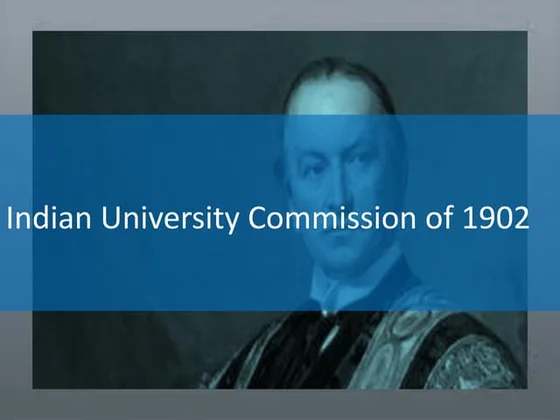The Hunter Commission: A Milestone in Indian Education Reform
History Indian HistoryPosted by NewAdmin on 2025-01-31 08:42:32 |
Share: Facebook | Twitter | Whatsapp | Linkedin Visits: 23

The Hunter Commission, officially known as the Indian Education Commission of 1882, was established by the British government under the leadership of Sir William Hunter, a distinguished British civil servant and historian. The commission was formed to review the progress of education in India since the implementation of Wood’s Despatch of 1854 and to suggest improvements in the existing education system, particularly focusing on primary and secondary education.
One of the primary reasons for establishing the Hunter Commission was the growing dissatisfaction among Indians regarding the neglect of primary education. While Wood’s Despatch had laid the foundation for the modern education system in India, its implementation had been largely focused on higher education, with insufficient attention given to elementary and rural education. The Hunter Commission was tasked with addressing this imbalance and formulating policies to expand and improve mass education.
The key recommendations of the Hunter Commission included the need for a clear division between primary, secondary, and higher education, with greater emphasis on primary education. It advocated for greater Indian involvement in education, recommending that local bodies such as municipalities and district boards be given the responsibility of managing primary schools. The commission also suggested that vernacular languages should be the medium of instruction at the primary level, making education more accessible to the general population. Additionally, it emphasized the need to train teachers, improve school infrastructure, and ensure better funding for primary education.
The impact of the Hunter Commission was significant, as it led to several reforms in the education system. One of its major outcomes was the decentralization of education, shifting responsibility to local governing bodies. This allowed for **better administration** of schools and increased the reach of education in rural areas. However, despite these recommendations, challenges such as lack of funds and infrastructure continued to hinder the development of primary education in India.
While the Hunter Commission made important contributions to the expansion of education, it also reflected the colonial government's reluctance to introduce widespread educational reforms that could empower Indians politically. Nevertheless, it played a crucial role in shaping the future of educational policies in British India and laid the groundwork for future reforms that would eventually lead to the development of a more comprehensive education system in the country.
Search
Categories
Recent News
- Chelsea's Cup Dreams Shattered: Fofana's Emotional Exit
- Kante's Turkish Twist: Fenerbahce Seal the Deal
- Kerala Defies Central Advice on Rice Incentives
- Naked Chaos at Bangalore's Elite Club: A Shocking Incident
- Solar Fury: ISRO's Vigil Against Radio Blackout
- Indian Markets: AI Jitters Halt Rally, IT Stocks Take a Hit
- SEBI's Reformative Push for Market Integrity
- South Africa's Cricket Renaissance: A Squad with Depth
Popular News
- Navigating IPO Market Dynamics Amid Volatility and Regulatory Changes
- Massive Worldwide Microsoft Outage Disrupts Multiple Sectors
- Panjapur Bus Stand to Reshape TNSTC Routes
- తెలుగుదేశం పార్టీ - పేదరికాన్ని నిర్మూలించడంలో వాగ్దానం
- Universities Embrace Remote Learning Technologies Amidst Ongoing Pandemic